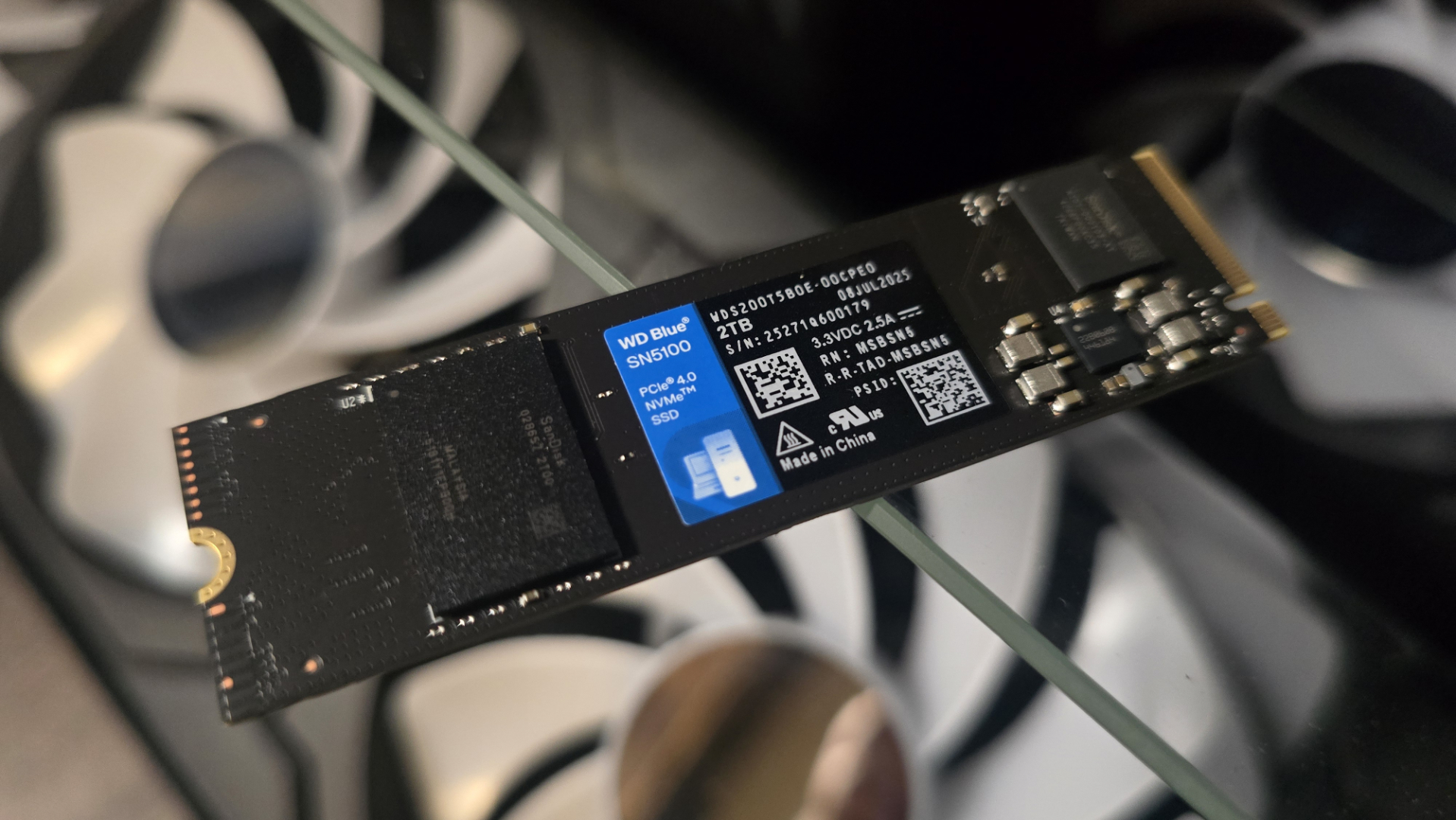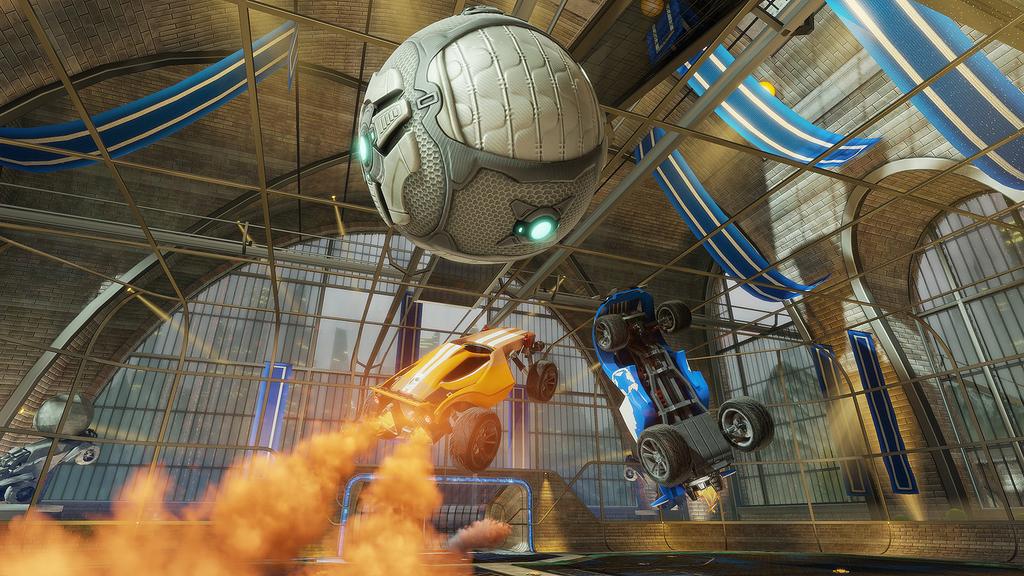
Rocket League's concept is simple: soccer but with cars. It's not a complex idea, but it is an absurd amount of fun. The mechanics and controls are easy to learn but extremely hard to master, having been tweaked and refined over nearly seven years of use in its first game—the unfortunately named Supersonic Acrobatic Rocket-Powered Battle-Cars.
Rocket League has exploded in popularity since it was released a month ago. With it's first DLC looming, which will bring both paid and free content to the game, developer Psyonix wants to keep the giant, car-propelled ball rolling. I got a chance to speak with Psyonix President Dave Hagewood about the unexpected success of Rocket League, crazy maps, esports, working with modders, hacking, and more.
PC Gamer: Were you expecting Rocket League to get as popular as it has as quickly as it did?
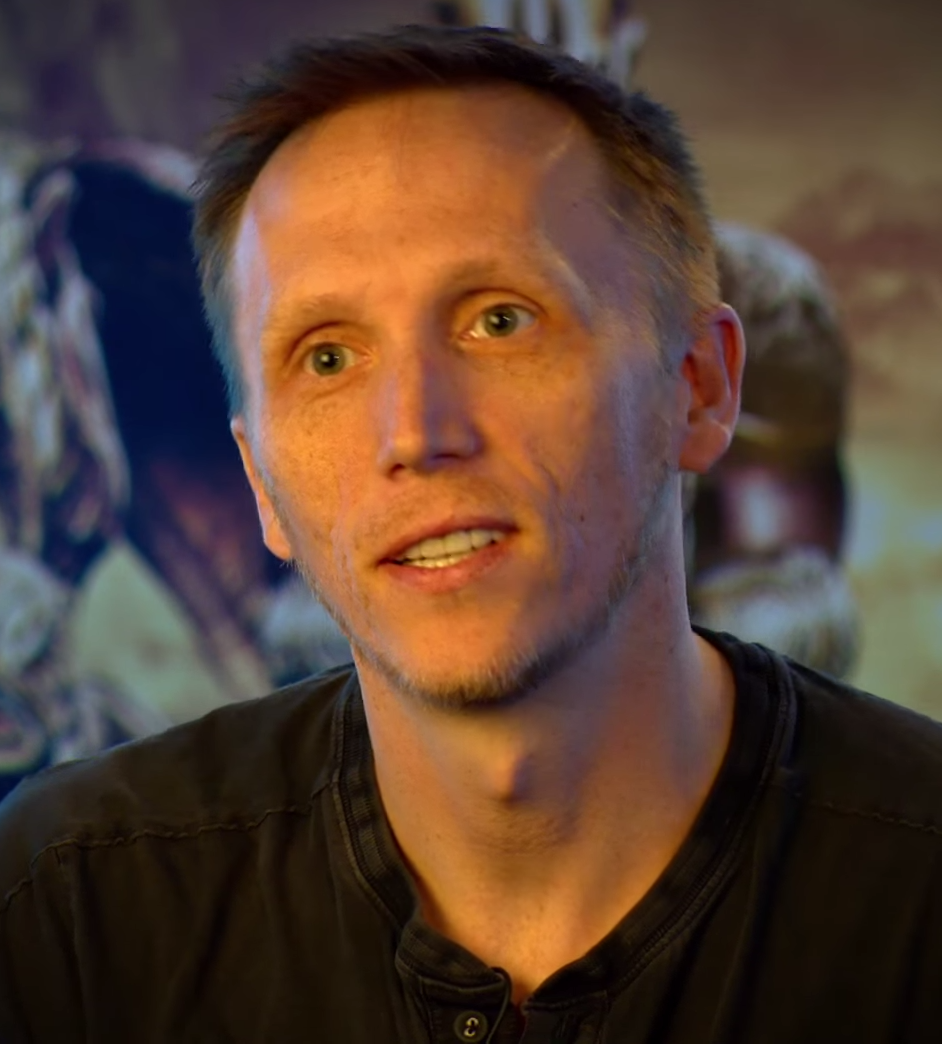
Dave Hagewood: No. [laughs] Not by a long shot, really. I mean, we believed in this game for a long, long time. We never gave up on it. And from that perspective, yeah, we knew that it could have potential to be a mainstream hit. But when we said mainstream, it wasn’t anything like what’s actually happened. We thought it would be held back by how strange it is, the fact that it’s based on soccer which isn’t as popular in America as it is in other countries, the fact that on PC you really want to get a controller and not everybody has a controller for their PC. So even though we were like “this is the greatest game that we’ve ever made, and we feel like everyone can jump into this and play,” that it’s gonna be held back by some of these factors. And the fact that it just blew by all of those is just amazing to us.
How many concurrent players were you expecting to average in your first week? Because I saw a screenshot of a Twitch chat where you said if you get 10,000 concurrents in your first week you’d do something silly.
Hagewood: Honestly, I undershot that. As soon as I said it and people started quoting me, I was like “oh crap, I should’ve made that higher.” Because with the hype we were getting at the time, I’m like “I really haven’t updated my projections based on this hype. We probably are gonna get 10k. In fact, we might get 50k!” We ended up getting 183k.
And have you seen it start to slow down since then or has it been holding strong?
Keep up to date with the most important stories and the best deals, as picked by the PC Gamer team.
Hagewood: We haven’t hit that 183k peak again, but we’ve been holding pretty steady just under that. And it has not really been fluctuating particularly downward or anything. It just seems to be fairly steady.
We want to do everything we can to support [Rocket League] becoming an esport.
Let’s talk about the first game, Supersonic Acrobatic Rocket-Powered Battle-Cars. How how much both code-wise and gameplay wise did you bring over from that, or did you just totally start fresh for Rocket League?
Hagewood: We started fresh from a coding perspective. By that time, that code base was so old that you basically had to start from scratch. We even changed out the base physics engine that we used, so there were a lot of changes. But the model itself, the gameplay, we didn’t want to mess with too much. We knew that the original was a little bit harder to get into it, it was a little more hardcore. It took a little longer for you to get really good at the game, to the point where you realized what was so great about it, and we wanted that to happen faster. So we did make a number of adjustments and tweaks over the span of many years to try to get that feeling a little bit better. Code-wise we started over, but we really aimed to replicate the game we had originally made, because we knew we had a good model then and we just needed to do it right.
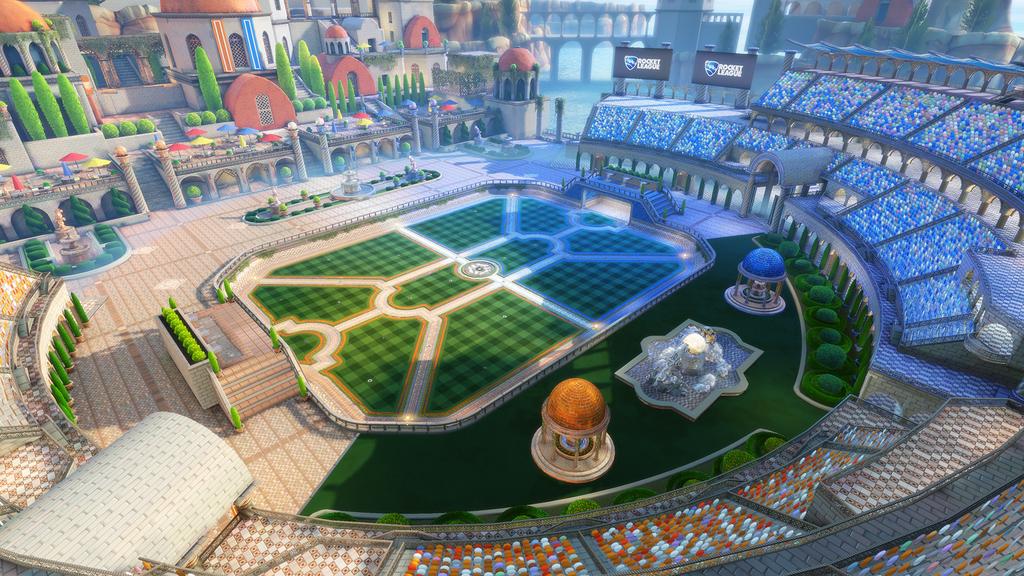
Speaking of some of the things you might want to bring back, are we ever going to see different and weird level layouts in Rocket League?
Hagewood: Absolutely, absolutely, absolutely. We wanted to start with the standard fields this time because we wanted to make sure everyone understood what the base game was, how we see the standard Rocket League experience being. We also wanted to promote competitive play in the game, and people who want extremely balanced competitive play and ranked modes and things like that, without adding a lot of extra noise. But we know the majority of players aren’t super competitive, they just want to have a good time—and we have a great time with the crazy different maps and so on. So we already have some of those in production to roll out later on.
Any idea when those might be coming, or is it too early to say?
Hagewood: It’s a little bit too early to say. We’re gonna constantly be churning on maps, and I think the [next] one coming out is another standard layout, but some of the ones after that will mix it up a little bit.
The community seems to really be trying to push Rocket League as an esport, how do you guys feel about that?
Hagewood: As soon as we understood what esports were, we immediately knew that we had the perfect one. Esports wasn’t that hot of a topic in 2008 when we were releasing the original, but as it became greater in popularity we were like “this is what we’ve already been doing with our game.” The small core community that’s behind the original game has been doing this for years; Organizing their own tournaments, and there were stand out players that had fame among our small community. And we’re like “we’ve already been doing this, this is perfect for this game.” We were always told—and it’s something that we understand very well—that you can’t force a game to be an esport, it has to be picked up by the fans. It has to be something people are interested in not just playing, but actually watching other people play. So we’ve let that kind of grow virally on its own to see what kind of feedback we’re getting, but we’re getting such great feedback that it’s become a major priority for us. We want to do everything we can to support it becoming an esport.
We’ve really built a theme around this game about trying to listen to our fans and see what they really want. Not necessarily what’s going to make us the most money or what’s the hottest thing going, but what do people really want?
Is Psyonix going to take a proactive role in esports, in a similar way that Riot Games does with League of Legends, or a more supportive role, in the way Blizzard does with its games?
Hagewood: I think maybe somewhere in between, we’re trying to figure that out ourselves. This is fairly new to us as well, and it became so popular so fast that we’re all kind of reeling for like “what do we do?” But it’s very important to us to be very strongly supportive. We have very strong relationships with the top players already, which is kind of unique for a new game because most games take time for the top players to develop. But in our case all the top players, at least currently, are players of the original game and that community was small enough that we know them all very well. We know their real names and where they live and how old they are and all that kind of stuff. We’ve been talking to them for so long, and we’re very happy that we can finally showcase their skills to everyone and show what amazing things these people have been doing with our game ever since.
So we’ve been taking a very active role in trying to guide that process and at least advise them in terms of who they should be talking to with esports, and how not to get tied into something that’s going to be exclusive deals and all that kind of stuff. So we’re trying to help in that respect, and we’re also trying to organize—there’s so many esports organizations out there, we’re really trying to make a strong effort to try to figure out how to organize the whole mass of the esports market into something that’s very clear for people to understand that we can promote and advertise, like “here’s the big tournament of the month or of the week, and here’s what’s going on with these guys, and go to their Twitch channels and subscribe to their Twitter accounts,” and that sort of thing. We’re trying to take a very proactive role in that.
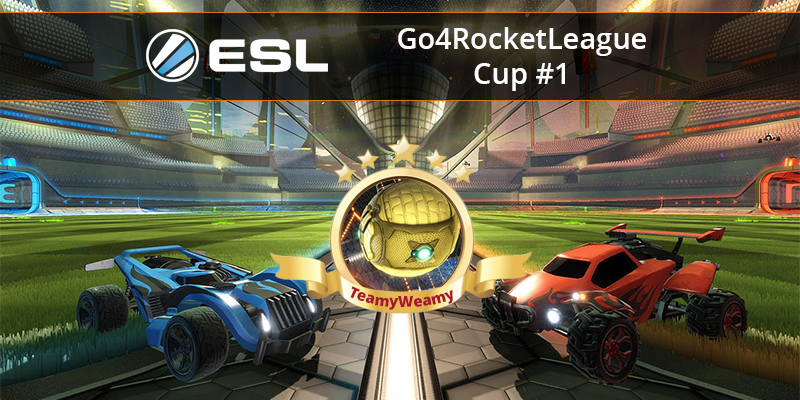
You’re releasing a Spectator Mode along with the upcoming Supersonic Fury DLC update. Was the Spectator Mode a response to this call-to-action for esports?
Hagewood: Even before the game came out we saw this exploding, because it exploded on Twitch in our Beta. So we immediately were like “okay, we really gotta prioritize that Spectator Mode.” We always intended to have one, but we just didn’t have it have enough on our priority list. So after we did [the beta,] we were like “okay, this has got to come out in the first DLC update,” so we’ve been working on that for a while.
One of the things that struck me about Rocket League is that it’s very ‘microtransaction friendly’ for something like “pay a dollar for this hat!” Did you ever think about doing that?
Hagewood: We did. We briefly considered whether we should go the free-to-play route.
Why didn’t you?
Hagewood: We’ve had a lot of experience with free-to-play. We’ve had ups and downs with it, and we don’t see free-to-play as being a definite, automatic “you’re gonna get a million people playing your game,” as some people do. I think there may have been a time at which a free game was kind of a novelty, like “oh my gosh, this game is coming out for free,” but it’s not anymore. You’re competing with a lot of other free-to-play games. We saw a lot of people have been turned off by that model, and we’ve really built a theme around this game about trying to listen to our fans and see what they really want. Not necessarily what’s going to make us the most money or what’s the hottest thing going, but what do people really want? What is gonna make us popular in the eyes of gamers and make them talk about us and say “this is a company that really gets it.” That’s what we want. That’s the kind of message that we wanted to hear people saying, is that at least one company is willing to listen to what the fans want and deliver on that.
We’re already working out some really interesting ideas on how we can start working with modders and user-generated content.
So we decided we wanted to go more, you might even call it the ‘old school’ or traditional way of doing things. You pay a price for the game, we have DLC but we’re not piece-mealing it out—you know, you pay $1 dollar for one hat. We’re giving you a big pack of really cool stuff, we don’t want to overprice it. And we also want to give out a lot of free DLC as well, just to keep people playing. Because we believe as long as we keep supporting the game, we keep having people come in and buying the game and telling their friends to buy the game, we don’t really need this microtranscation based model.
So if listening to your community is very important to you, does that mean we can expect a “Mad Max: Fury Road DLC” soon? It’s being called for.
Hagewood: [Laughs] I would be very interested in talking to the Mad Max people about that, let’s put it that way.
Do you have any plans for mod support?
Hagewood: We’re talking about it. One of the challenges is because we’re cross-play, and the cross-play means everything has to be updated on both the PC and the PlayStation version. So that’s a big challenge. I can’t go into it, but we’re already working out some really interesting ideas on how we can start working with modders and user-generated content.
I saw a video recently of someone claiming to have been playing against a hacker, but I then saw a response that said you intentionally put a lot of the code on the server side to prevent things like that.
Hagewood: Yep, we did.
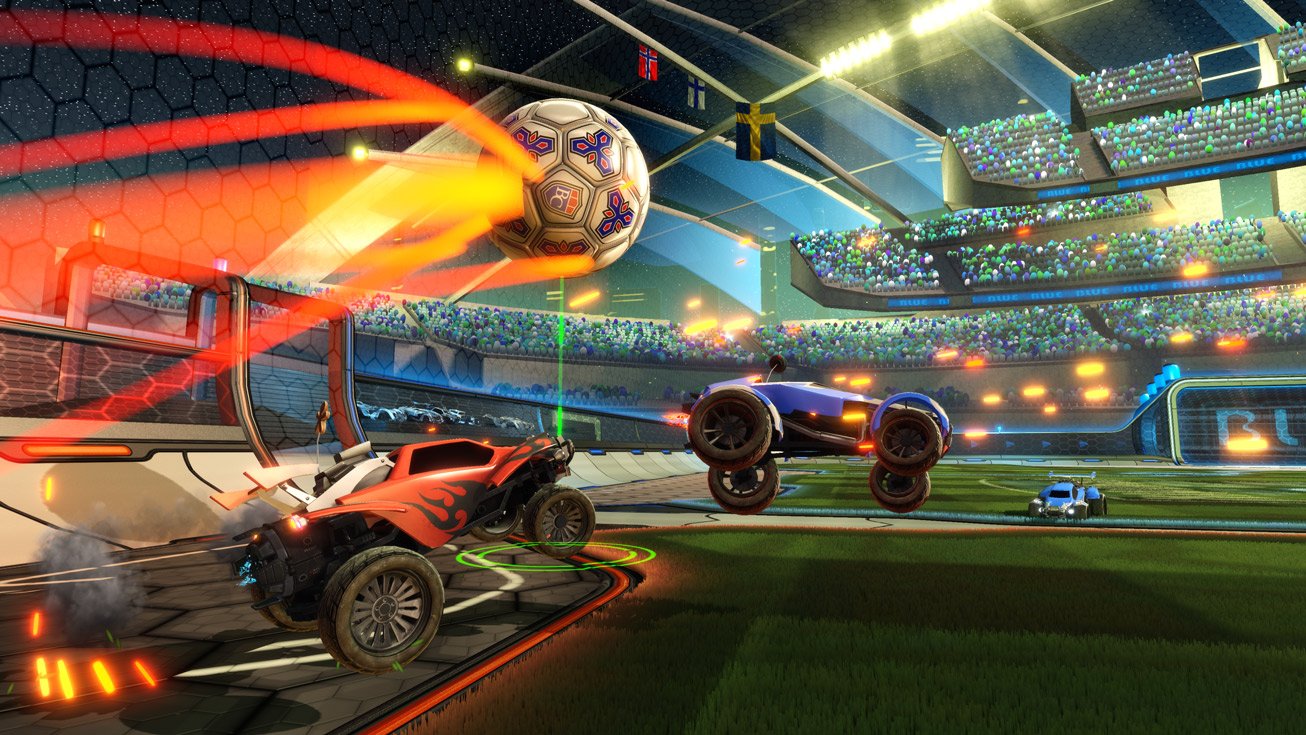
Have you been able to confirm whether that was or wasn’t someone hacking?
Hagewood: We were on top of that right away, because honestly that was the kind of thing that putting the code server side should have made impossible. We looked at that and were like “what is going on?” and I’d say within a few days, our lead programmer had built his own system that looked almost identical to what that cheat video that was distributed around was doing, and figured out that it was just some old code that had gotten left in the build that shouldn’t be there still and we had to close that hole up. I avoided talking about it until the patch came out because I didn’t want people looking for it, but it’s gone now. [Laughs]
Oh, so that actually got patched out in the recent v1.03 patch?
Hagewood: It should have. Now, we can’t be 100% certain that that video was the hole that we patched. All I can say is we were able to replicate what looked exactly like that, and fix that. We’re pretty confident that we can keep cheating under control.
Speaking of updates and patches, what’s your update plan moving forward? How frequently do you see yourself adding content to the game?
Hagewood: You know, it’s really an ASAP thing. There’s so much that we want to do, and there’s so much that we’re doing every day. If I could patch the game every single day and have something new every morning for people, I probably would. But the logistics of it make it very difficult, because we have to make sure we don’t break anything. [Laughs]
Statistically so far we have not seen one car beating another... that’s something we’re going to be constantly monitoring.
So it’s as it comes, basically?
Hagewood: Yeah. But practically speaking, it’s almost impossible to do less than a couple of weeks, and it’s more likely that you can do something about once a month. That’s based on the time it takes to develop the content, to develop the feature, then the time that we take to test it, then the time Sony and other platforms have to certify and make sure that it does work, and if there’s any problems then you need time to go back and fix those problems. So that whole process is what makes it have to be delayed as much as it does, but honestly we push to try to get them out as fast as possible because we want to see people get into this content as soon as they can.
Now that you’ve got Spectator Mode and the Supersonic Fury DLC coming, what’s your next priority in terms of features?
Hagewood: I don’t think I can say. I think we haven’t decided exactly what the list is going to be. We have a very long list, probably a four-patch-long list at least, and we’re constantly reiterating and reshuffling what those next priorities are going to be.
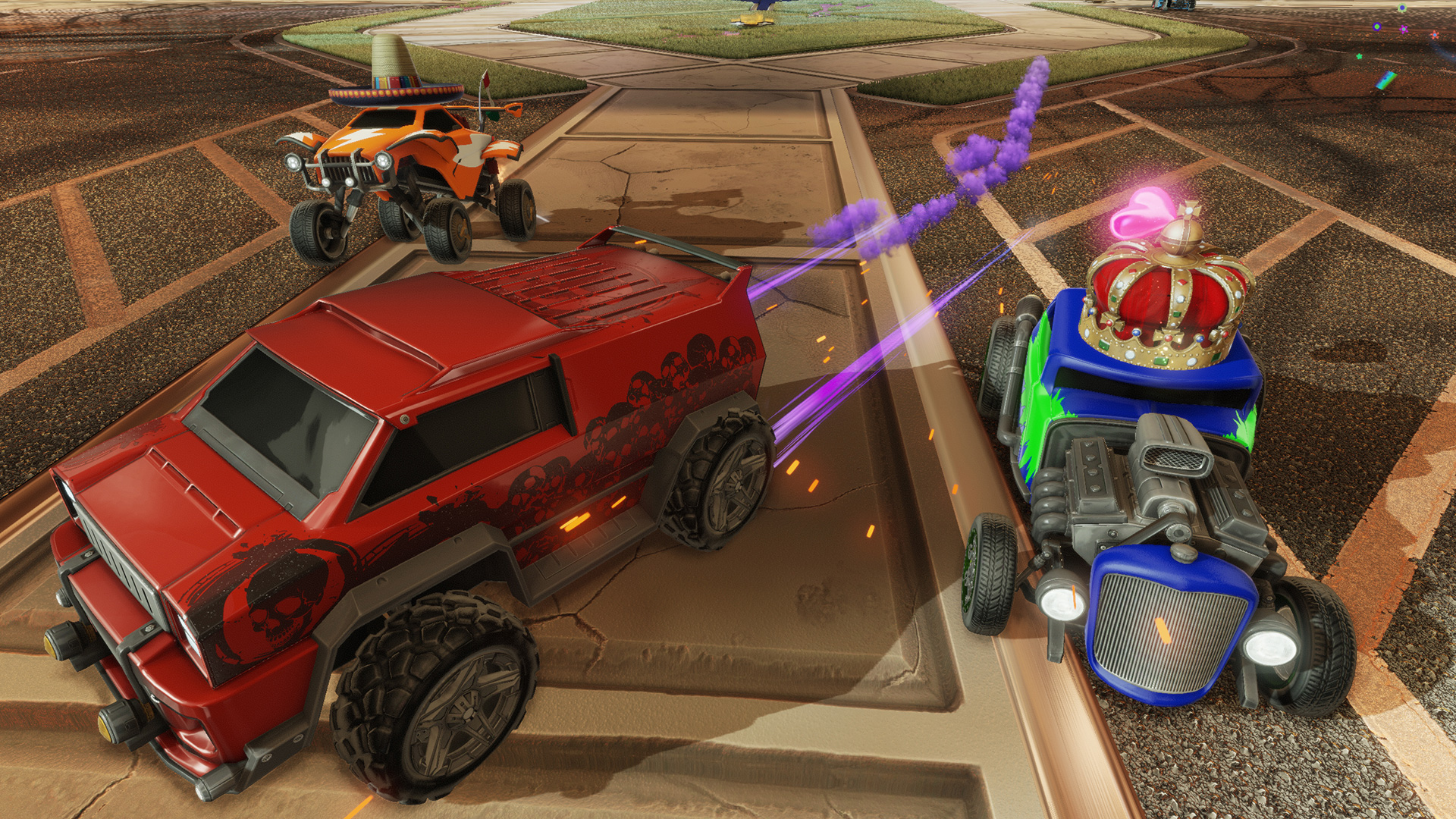
One of my favorite parts of Rocket League is that all the cars have identical stats, as it allows for a very even playing field for competitive play. But the one thing that does change is the hitboxes for each card model. Have you noticed any win-rate differences, or any other differences between different cars and the size of their hitboxes? Or have you noticed pro-players choosing one type of car?
Hagewood: Sometimes we’ll see pro-players tend towards something, but statistically so far we have not seen one car beating another. Now, that’s something we’re going to be constantly monitoring. People could change their strategy, a patch could maybe change things slightly—although we don’t really make physics changes or major gameplay changes in patches because we feel like we’ve got that pretty well down. But we’re constantly monitoring that, and if we did see a particular car increasing its win rate, that would be something that we’d want to be proactive in correcting. But I don’t expect to see very much of that.
I think people find subtle differences, but I think they’re more subtle than you’d think. And some advantages people think they might be getting with a particular car, might be an advantage with their style of play, but it’s not an advantage with everybody else’s style of play. So right now we think it’s not gonna make that much difference which car you choose. It’s really about a personal choice and what do you think feels right to you.
I would love to be going to a huge stadium and seeing the best Rocket League players competing against each other.
What’s your long-term plan for the game? Where do you want Rocket League to be in, say, a year-and-a-half to two years from now?
Hagewood: Year-and-a-half to two years? I would love to be going to a huge stadium and seeing the best Rocket League players competing against each other. [Laughs] That’s what I would love to see. I’d love to see an even bigger community around it, more tournament play, I’d love there to be a lot more depth inside the game, more modes. You know, all the things that we’re planning on bringing in, I’m hoping that it has a long tail to use an industry term. But that people keep playing this as a staple game—that was one of the things that we thought was so great about the original, that it didn’t just peak and then go away. People kept playing it, and even when an exciting new game would come out, they’d play that for a while and then come back and play our game again. So I’m hoping that this one has that kind of lifespan, and that the support we’re bringing to it allows it to continue having that lifespan.
Thanks for talking with us.


